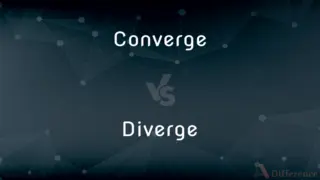Mythic vs. Legendary — What's the Difference?
Edited by Tayyaba Rehman — By Urooj Arif — Updated on April 20, 2024
"Mythic" pertains to myths, embodying ancient stories or legendary figures and their deeds, while "legendary" refers to something or someone famous or well-known, often because of outstanding qualities or deeds.

Difference Between Mythic and Legendary
Table of Contents
ADVERTISEMENT
Key Differences
Mythic refers to elements derived from or characteristic of myths, often steeped in the supernatural or symbolic. These stories typically hold cultural or religious significance, reflecting the values and beliefs of a society. On the other hand, legendary pertains to people, objects, or events that are renowned or celebrated, often not strictly bound to the fantastical or ancient past but also including modern phenomena.
The term "mythic" can imply a deeper, more archetypal resonance that connects common human experiences and psyche, often involving gods, creatures, or fantastical events. Whereas "legendary" often focuses on the extraordinary qualities or historical impact of a person or an event that might be exaggerated but is rooted in a historical context.
Mythic stories are primarily used to explain natural phenomena, teach moral lessons, or entertain, with their truth being symbolic rather than literal. Legendary tales, while they can also teach and entertain, are often told in a way that emphasizes the heroism or extraordinary nature of individuals and can be based on historical figures whose real deeds have been embellished over time.
In literature and arts, mythic themes are used to explore universal questions of existence, creation, and morality, often set in a time that is outside of ordinary historical timelines. In contrast, legendary narratives can be used to inspire, commemorate, or idolize, focusing more on celebrating the achievements and virtues of its subjects, which might include contemporary or historical figures.
The usage of mythic often implies something more profound and enduring in human culture, tied to spirituality or existential questions. Legendary, however, connotes fame, exceptional achievement, and sometimes a touch of hyperbole, focusing more on admiration and inspiration than the deeper symbolic meanings of myths.
ADVERTISEMENT
Comparison Chart
Definition
Relating to myths, symbolic
Renowned, famous for achievements
Context
Ancient stories, supernatural
Celebrated figures, historical or modern
Connotation
Spiritual, timeless, profound
Exceptional, admired, somewhat hyperbolic
Usage in literature
Exploring universal themes
Celebrating or commemorating heroes
Common associations
Gods, creation myths, moral lessons
Heroes, exaggerated feats, fame
Compare with Definitions
Mythic
Symbolic or allegorical, particularly in a cultural sense.
The mythic battle between good and evil is thematic in many epics.
Legendary
Having an aura of legend or fable.
The old castle’s legendary ghosts are a popular tale among tourists.
Mythic
Characterized by an element of the legendary or fabulous.
The hero’s journey is a mythic narrative found in cultures worldwide.
Legendary
Of, based on, or discussed in legend.
Mythic
Resembling or characteristic of a myth.
The ancient ruins held a mythic allure, wrapped in centuries of lore.
Legendary
Extremely well known; famous or renowned
A legendary talk show host.
Mythic
Pertaining to mythology or myths.
The mythic origins of the stars speak of gods and monsters.
Legendary
Of or pertaining to a legend or to legends.
Mythic
Involving beings or elements beyond the ordinary.
Her mythic status in the community was akin to that of a saint.
Legendary
Appearing (solely) in legends.
Mythic
Of or existing in myth
The mythical unicorn.
Legendary
Having the splendor of a legend; fabled.
Mythic
Imaginary; fictitious.
Legendary
Having unimaginable greatness; excellent to such an extent to evoke stories.
Mythic
Often mythic Of, relating to, or having the nature of a myth
A novel of profound, almost mythic consequence.
Legendary
(obsolete) A collection of legends, in particular of lives of saints.
Mythic
Mythical; existing in myth.
Legendary
(obsolete) One who relates legends.
Mythic
Larger-than-life.
Legendary
(Pokémon) A legendary Pokémon.
Mythic
Of or relating to myths; described in a myth; of the nature of a myth; fabulous; imaginary; fanciful; mythological.
The mythic turf where danced the nymphs.
Hengist and Horsa, Vortigern and Rowena, Arthur and Mordred, are mythical persons, whose very existence may be questioned.
Legendary
Of or pertaining to a legend or to legends; consisting of legends; like a legend; fabulous.
Legendary stories of nurses and old women.
Mythic
Relating to or having the nature of myth;
A novel of almost mythic consequence
Legendary
A book of legends; a tale or narrative.
Read the Countess of Pembroke's "Arcadia," a gallant legendary full of pleasurable accidents.
Mythic
Based on or told of in traditional stories; lacking factual basis or historical validity;
Mythical centaurs
The fabulous unicorn
Legendary
One who relates legends.
Legendary
So celebrated as to having taken on the nature of a legend;
The legendary exploits of the arctic trailblazers
Legendary
Celebrated in fable or legend;
The fabled Paul Bunyan and his blue ox
Legendary exploits of Jesse James
Legendary
Of, relating to, or characteristic of legend or a legend.
The legendary exploits of Alexander the Great continue to captivate historians.
Legendary
Celebrated in legend.
The fountain’s legendary powers were said to grant eternal youth.
Legendary
Remarkably outstanding.
Her legendary prowess in negotiations saved the deal.
Legendary
Well-known. famous.
He became legendary in his own time for his innovative designs.
Common Curiosities
Are all legendary figures historical?
Not all; some legendary figures can be fictional or semi-historical, their stories embellished over time.
Can myths be considered factual?
Myths are not factual in the historical or empirical sense but are truths on a symbolic or moral level, conveying beliefs and values of a culture.
What distinguishes a mythic figure from a legendary one?
A mythic figure often embodies deeper cultural or spiritual narratives, while a legendary figure is renowned for extraordinary deeds or qualities, possibly rooted in history.
Why are mythic themes recurring in literature?
Mythic themes recur because they address fundamental human concerns and experiences across cultures and ages.
Do mythic and legendary need to involve supernatural elements?
Mythic almost always involves supernatural elements; legendary may not, though it often includes exaggerated features.
Can a real person become a mythic figure?
Yes, especially if their life and deeds are imbued with symbolic significance that resonates on a broader cultural or spiritual level.
How do myths influence modern culture?
Myths influence modern culture through literature, cinema, and arts, often shaping contemporary values and ideals.
What is the impact of legendary stories on society?
Legendary stories inspire, teach, and entertain, often serving as moral exemplars or symbols of national or cultural pride.
How can someone become a legendary figure?
Through significant achievements, exceptional contributions to society, or becoming emblematic of particular virtues or feats.
What role do legends play in education?
Legends can be used to motivate and teach ethical lessons, illustrating the consequences of actions and the virtues of character.
Share Your Discovery

Previous Comparison
Yid vs. Jew
Next Comparison
Converge vs. DivergeAuthor Spotlight
Written by
Urooj ArifUrooj is a skilled content writer at Ask Difference, known for her exceptional ability to simplify complex topics into engaging and informative content. With a passion for research and a flair for clear, concise writing, she consistently delivers articles that resonate with our diverse audience.
Edited by
Tayyaba RehmanTayyaba Rehman is a distinguished writer, currently serving as a primary contributor to askdifference.com. As a researcher in semantics and etymology, Tayyaba's passion for the complexity of languages and their distinctions has found a perfect home on the platform. Tayyaba delves into the intricacies of language, distinguishing between commonly confused words and phrases, thereby providing clarity for readers worldwide.












































